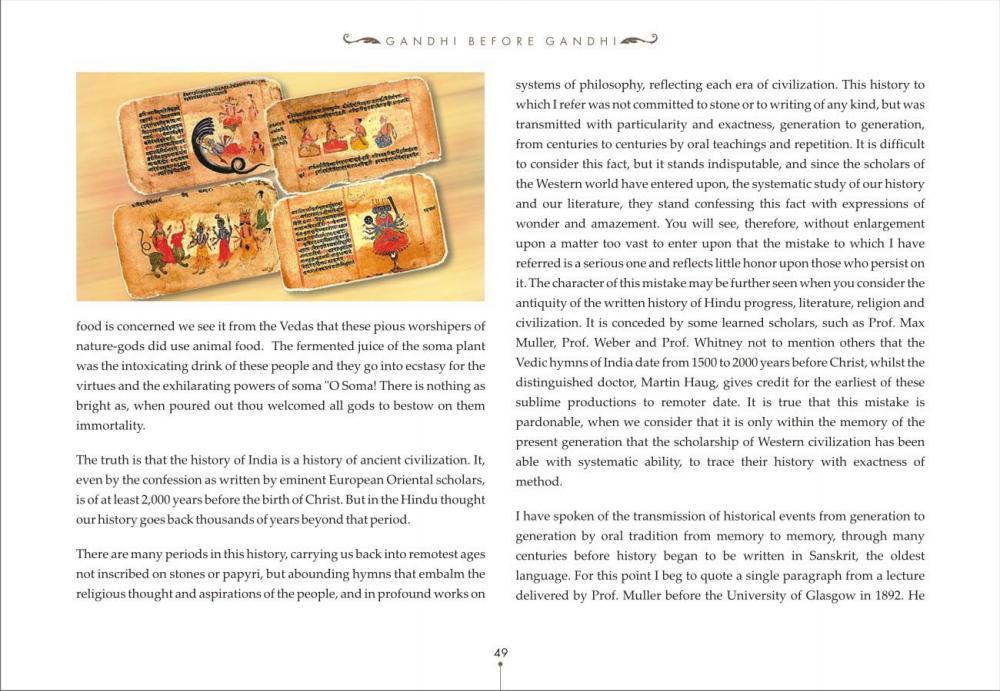________________
GANDHI BEFORE GANDHIA
irected shutte
food is concerned we see it from the Vedas that these pious worshipers of nature-gods did use animal food. The fermented juice of the soma plant was the intoxicating drink of these people and they go into ecstasy for the virtues and the exhilarating powers of soma "O Soma! There is nothing as bright as, when poured out thou welcomed all gods to bestow on them immortality.
The truth is that the history of India is a history of ancient civilization. It, even by the confession as written by eminent European Oriental scholars, is of at least 2,000 years before the birth of Christ. But in the Hindu thought our history goes back thousands of years beyond that period.
There are many periods in this history, carrying us back into remotest ages not inscribed on stones or papyri, but abounding hymns that embalm the religious thought and aspirations of the people, and in profound works on
49
systems of philosophy, reflecting each era of civilization. This history to which I refer was not committed to stone or to writing of any kind, but was transmitted with particularity and exactness, generation to generation, from centuries to centuries by oral teachings and repetition. It is difficult to consider this fact, but it stands indisputable, and since the scholars of the Western world have entered upon, the systematic study of our history and our literature, they stand confessing this fact with expressions of wonder and amazement. You will see, therefore, without enlargement upon a matter too vast to enter upon that the mistake to which I have referred is a serious one and reflects little honor upon those who persist on it. The character of this mistake may be further seen when you consider the antiquity of the written history of Hindu progress, literature, religion and civilization. It is conceded by some learned scholars, such as Prof. Max Muller, Prof. Weber and Prof. Whitney not to mention others that the Vedic hymns of India date from 1500 to 2000 years before Christ, whilst the distinguished doctor, Martin Haug, gives credit for the earliest of these sublime productions to remoter date. It is true that this mistake is pardonable, when we consider that it is only within the memory of the present generation that the scholarship of Western civilization has been able with systematic ability, to trace their history with exactness of method.
I have spoken of the transmission of historical events from generation to generation by oral tradition from memory to memory, through many centuries before history began to be written in Sanskrit, the oldest language. For this point I beg to quote a single paragraph from a lecture delivered by Prof. Muller before the University of Glasgow in 1892. He




